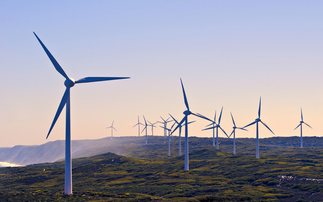Credit: iStock
Energy and Climate Intelligence Unit (ECIU) warns temperature rises, increased rainfall, and El Niño are hitting the world's largest exporters of cocoa beans
Chocolate Easter egg prices are on the rise in the UK thanks to a combination of climate change-driven warming and this year's El Niño weather event, which have negatively impacted cocoa yields in West Africa.
That is that warning contained in new research released today by the Energy and Climate Intelligence Unit (ECIU), which shows how the world's largest exporters of cocoa beans - the key ingredient for chocolate eggs - are also some of the countries worst hit by extreme weather risks that are already having an impact on chocolate prices in the UK.
For example, extreme rainfall in the Ivory Coast and Ghana in December 2023 slashed cocoa yields, as the wet conditions caused plants to rot with black pod disease. Total precipitation in the West Africa region was more than double the 30-year average for that time of year, according to the research.
The wet conditions were swiftly followed by periods of drought, which ECIU said was "typical" of the El Niño weather effect in 2024, and further reduced yields of cocoa. The situation was a "shock to the system" for farmers of cocoa - a drought sensitive crop - as their plants had swiftly gone from suffering too much water to not enough, ECIU explained.
These impacts have impacted chocolate prices, with cocoa bean prices rising this month to an "unprecedented high" of more than $7,000 - or £5,500 - per tonne, which is nearly three times the price recorded in March 2020.
Weight for weight, ECIU said cocoa was more than 11 times more valuable than oil and prices have continued to rise in recent weeks with the latest price recorded in excess of $8,000 per tonne.
ECIU said nearly all cocoa globally is grown in countries which are the most vulnerable and least well prepared to cope with worsening climate impacts, underscoring the scale of the risk posed to the UK's supply of crucial and popular food products.
The research reveals how UK trade data shows that in 2023 58 million kilograms of cocoa beans worth £127m were imported to the UK directly from climate vulnerable locations, with 85 per cent of all the UK's cocoa beans coming from the Ivory Coast alone.
Amber Sawyer, analyst at ECIU, said the situation demonstrated the importance of the UK working globally to combat climate change and its damaging impacts by better preparing countries which produce key commodities for the worsening impacts of global warming.
Farmers in West Africa who grow the cocoa beans for Easter eggs sold in the UK "are struggling in the face of both extreme heat and extremes in rainfall", she added.
"Wealthy nations like the UK can provide financial and technical support to developing countries to help their farmers better cope with these extremes. However, as climate change worsens, more support will undoubtedly be needed to protect their livelihoods and to keep the flow of cocoa beans, tea and rice coming into the UK."
Overall, she warned "there are limits to the conditions in which crops can grow", adding that ultimately the only way to stop these conditions from getting worse is to reach net zero emissions.
Chocolate is not the only food staple facing risks that are set to intensify as climate impacts worsen and El Niño weather patterns become more intense and volatile.
ECIU's research also found 29 per cent of UK rice imports are from India, while the same proportion of coffee comes from Vietnam, and more than half of green tea came from China in 2022 – areas which the report warns are facing weaker monsoon rains, stronger heatwaves, droughts, and water shortages during El Niño periods.
Kenya was also hit with cycles of extreme drought followed by torrential rain in 2022, impacting farmers who provided more than half the UK's black tea.
Similarly, extreme heat and drought in South Africa threaten some of the UK's most popular fruit imports. In 2022, a third of grapes, a quarter of navel oranges, and a third of mandarins and satsumas all came from the country.
The report showed that El Niño can also bring higher temperatures, drought and fire risk to South America where more than a third of avocados come from Peru, and nearly all pineapples imported to the UK come from Costa Rica.
Ben Clarke, research assistant on analysis and interpretation of climate data for extreme weather at the Grantham Institute at Imperial College London, said "El Niño years often lead to challenges for farmers through changing patterns of weather".
"Increasingly, climate change, driven by fossil fuel use, is multiplying this natural challenge in many regions," he added. "It fuels more extreme conditions, devastates harvests, and makes food costs higher for all."
Could you or a colleague be recognised at the inaugural Women in Green Business Awards? You can submit your nominations for the awards now.








